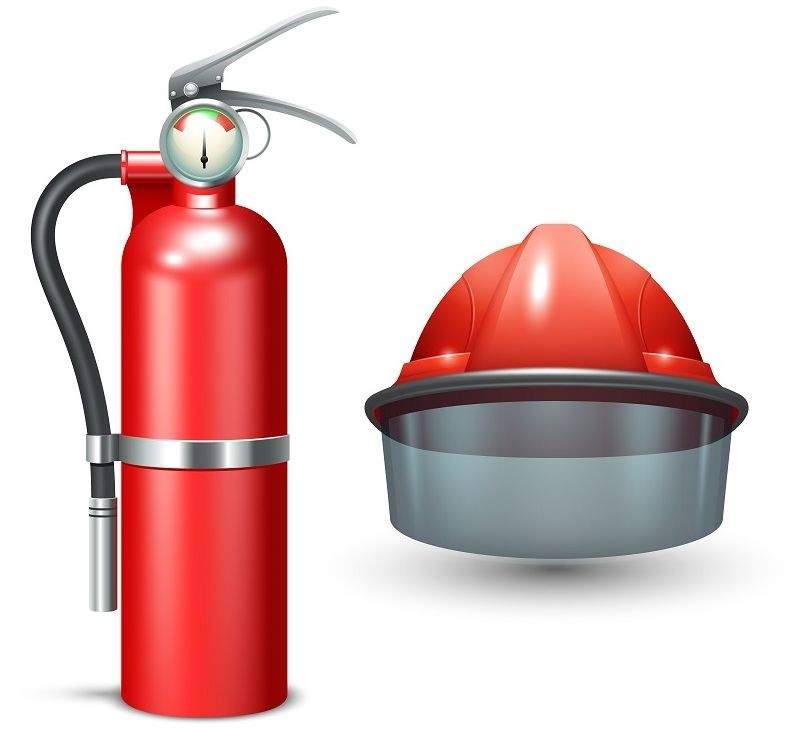Fire Extinguisher Maintenance: What You Need to Know to Stay Safe
Fire safety is something that no one should
take lightly, but with the right precautions, it's possible to stay safe. In
this blog post, we'll be exploring the importance of fire extinguisher
maintenance, and how it can help keep you and your family safe from potential
danger. Read on to find out what you need to know about fire extinguisher
maintenance!
Introduction to Fire Extinguisher Maintenance
As a responsible business owner everyone should be aware of the importance of fire safety. Part of keeping your workplace safe is maintaining your fire extinguishers. But what does fire extinguisher maintenance entail?
● Why regular maintenance is important
● How often to service your units
● What type of maintenance is required
● Who should perform the maintenance
By the end of your reading, you'll better
understand how to keep your fire extinguishers in working order. Let's get
started!
Steps for Regular Fire Extinguisher Maintenance
● 1. Check the pressure gauge regularly to ensure that the fire extinguisher is full and ready to use.
● 2. Inspect the fire extinguisher for any physical damage, such as dents, leaks, or cracks.
● 3. Make sure that the nozzle is not clogged and that the pin is in place.
● 4. Check the expiration date on the fire extinguisher and replace it if necessary.
● 5. Perform a monthly fire extinguisher test to ensure it is working properly.

What to Do When an Emergency Occurs!
When an emergency occurs, it is important to know what to do. Here are some tips on how to stay safe in the event of a fire:
● If you see smoke or flames, call 911 immediately.
● If you have a fire extinguisher, make sure you know how to use it properly before attempting to extinguish the fire.
● Never try to fight a fire with water. This will only spread the flames and put you at risk of being burned.
● If possible, evacuate the area immediately. If you cannot evacuate, go to a room with the least amount of smoke and stay low to the ground where the air is cleaner.
● Take a wet cloth or towel to cover your mouth and nose, to help filter out the smoke.
●
Stay calm and wait for help to
arrive.
Common Mistakes While Using a Fire Extinguisher
If you've ever been in a situation where you needed to use a fire extinguisher, you know how important it is to have one that is in good working order. But even if your extinguisher is in good condition, people still make some common mistakes when using them. Here are a few of the most common mistakes:
Not Aiming the Nozzle at the Base of the Fire: The first mistake people make is not aiming the nozzle at the base of the fire. This is where you want to direct the stream of extinguishing agents, as it will help smother the flames and release the fire more quickly.
Not Holding the Nozzle Close Enough to the Fire: Another common mistake is not holding the nozzle close enough to the fire. You want to be sure that you are directing the stream of an extinguishing agent right onto the base of the fire, as this will help to put it out more quickly.
Not Sweeping Side to Side: Once you have directed the stream of the extinguishing agent onto the base of the fire, you want to sweep it side to side so that you cover as much of the area as possible. This will help ensure that all of the flames are extinguished.
These are just a few of the most common
mistakes people make when using a fire extinguisher. Be sure to avoid these
mistakes so that you can effectively put out any fires that may occur.
Conclusion
Fire extinguisher maintenance is necessary to stay safe; we can help you prepare for an emergency. By regularly inspecting your fire extinguishers, you can be sure that they are in proper working condition should the need arise. Additionally, it's important to review local laws and regulations regarding fire extinguisher maintenance to ensure that you're compliant with any applicable standards or requirements. These simple steps will help keep your family and property safe from fires.

